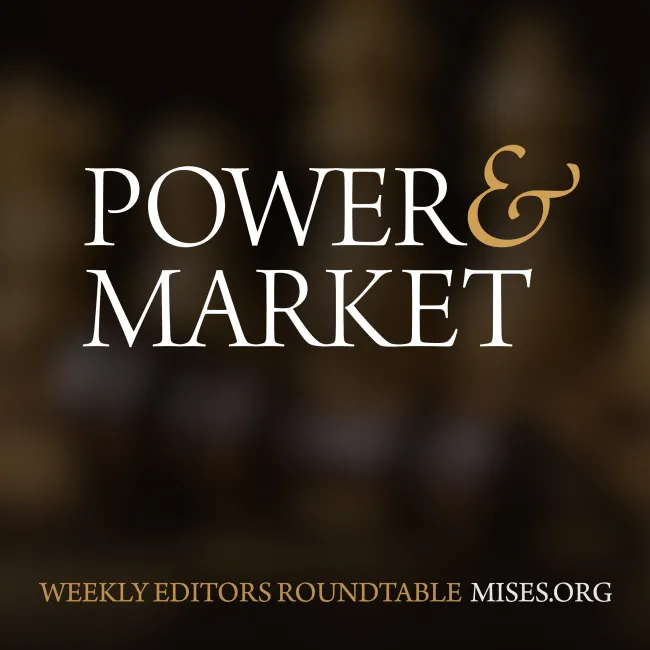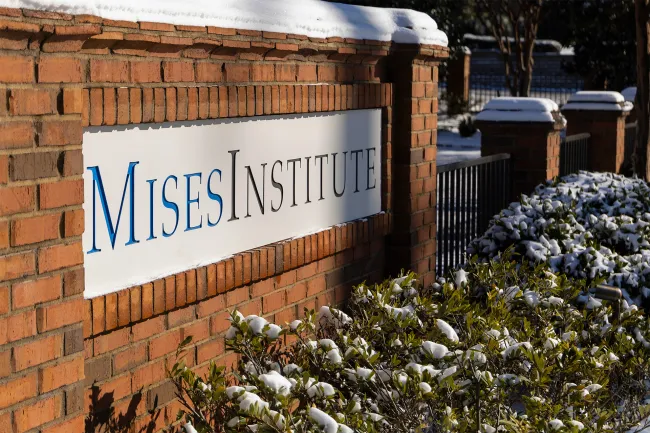

Trump, DOGE, and the Machiavellians

Ending Subsidies to Amtrak Will Benefit Rail Travelers

Does the “Economy” Actually Exist?

The Certifiers Rule, So Be Prepared

Only Bitcoin and Gold Can Stop Governments from Destroying the Currency

Reviving Catholic Liberalism

The Debate Over the Big Beautiful Bill
Daniel Lacalle joins Bob to tout the BBB as a pro-growth piece of legislation that is as good as libertarians are going to get.

The Theory of Interventionism
Mark Thornton breaks down Murray Rothbard’s theory of interventionism: why free markets lift all boats, and government meddling sinks them.

Israel, Iran, and Immigration
On this episode of Power and Market, the group discusses the fallout from Israel's strikes on Iran and the Trump Administration's (changing?) position on immigration enforcement.

Fiat Money and Chartalism: Why MMT Is Wrong
Joshua Mawhorter joins us to talk about how the fiat-money theories of Modern Monetary Theory and chartalism aren't supported by the historical facts.
Virtual Mises University is the online counterpart to the Mises University conference and can be attended by anyone.
Mises University is the world's leading instructional program in the Austrian School of economics.
Join us for Supporters Summit 2025 in Delray Beach, Florida, to discuss "Making America Free Again."
This fall, students from across the US are participating in Mises Book Clubs led by scholars at various universities and colleges. These student groups promote deep reading in Austrian economics.












